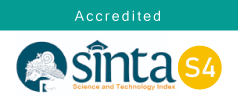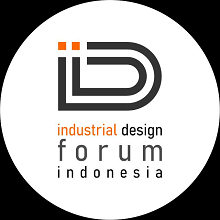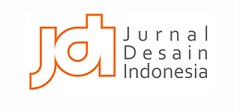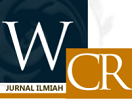PRIORITAS PENGEMBANGAN PRODUK PENUNJANG PERTANIAN PERKOTAAN (STUDI KASUS: TOMPEYAN, YOGYAKARTA)
Abstract
The increasing rate of population growth and urbanization resulted in a shift in the function of agricultural land into residential areas which r has an impact on the occurrence of a food crisis due to population growth that is not balanced with the rate of food production. One of the efforts to grow food self-sufficiency in urban areas, especially on narrow land, is to practice urban agriculture. This study aims to determine the priority for the development of products that support the productivity of urban farming practices with the case study in the city of Yogyakarta. Data was collected through a survey with a sample of 25 households in RW 3 Tompeyan, Tegalrejo District, Yogyakarta City, who practice urban farming. Data were analyzed quantitatively distributively to find a trend of significance. The results of the study show that products that support plant watering, development of planting containers, and products that facilitate the application of waste in urban agriculture are top priorities that designers and manufacturers of agricultural equipment must develop to support urban farming practices in the City of Yogyakarta, as well as in other regions in Indonesia. with similar characteristics.
Keywords
Full Text:
PDF (Bahasa Indonesia)References
Asher, M., Clouse, C., & Guevara, F. (2014). Urban Farming Toolkit: Visual Guide To Getting Your Garden Started. Albert and Tina Small Center for Collaborative Design at Tulane University. https://digitallibrary.tulane.edu/islandora/object/tulane%3A79271
Aulia, A. N., & Adhitama, G. A. (2021). Makna eksistensi Leuit, Saung Lisung, dan Goah Sunda Kasepuhan Ciptagelar dalam Menjaga Ketahanan Pangan. Narada : Jurnal Desain Dan Seni, 8(April), 71–88. https://doi.org/10.2241/narada.2021.v8.i1.006
Bauw, I. Z. (2015). Gerakan Urban Farming: Studi atas Mobilisasi Sumber Daya oleh Komunitas Bandung Berkebun [Universitas Gajah Mada]. http://digilib.fisipol.ugm.ac.id/handle/15717717/932
Creswell, J. W. (2017). Research Design: Pendekatan Kualitatif, Kuantitatif, dan Mixed (5th ed.). Pustaka Pelajar.
Davis, M. M., & Hirmer, S. (2015). The potential for vertical gardens as evaporative coolers: An adaptation of the ‘Penman Monteith Equation.’ Building and Environment, 92, 135–141. https://doi.org/10.1016/J.BUILDENV.2015.03.033
Department of Economic and Social Affairs. (2018). 68% of the world population projected to live in urban areas by 2050, says UN. United Nations. https://www.un.org/development/desa/en/news/population/2018-revision-of-world-urbanization-prospects.html
Fauzi, A. R., Ichniarsyah, A. N., & Agustin, H. (2016). Pertanian Perkotaan: Urgensi, Peranan, dan Praktik Terbaik. Jurnal Agroteknologi, 10(01), 49–62.
Handayani, W., Nugroho, P., & Hapsari, D. O. (2018). Kajian potensi pengembangan pertanian perkotaan di kota semarang. Riptek, I(2), 55–68. https://riptek.semarangkota.go.id/index.php/riptek/article/view/10/10
Indraprahasta, G. S., & Agustina, I. (2012). Urban Agriculture Activity and Its Potentials to Eradicate Urban Poverty in Jakarta. Tataloka, 14(August 2012), 186–200. https://doi.org/10.14710/tataloka.14.3.186-200
Junainah, W., Kanto, S., & Soenyono. (2016). Program Urban Farming Sebagai Model Penanggulangan Kemiskinan Masyarakat Perkotaan (Kasus, Studi Kelurahan, Tani Sukolilo, Kecamatan Surabaya, Kota Junainah, Wahida Kanto, Sanggar). Wacana, 19(3), 148–156.
Krikser, T., Zasada, I., & Piorr, A. (2019). Socio-economic viability of urban agriculture - A comparative analysis of success factors in Germany. Sustainability (Switzerland), 11(7). https://doi.org/10.3390/su11071999
Kurniawan, R. F. (2017). Sultan: Alih Fungsi Lahan Pertanian di DIY Sudah Terlalu Tinggi. Tribun Jogja. https://jogja.tribunnews.com/2017/09/27/sultan-alih-fungsi-lahan-pertanian-di-diy-sudah-terlalu-tinggi
Kyaw, T. Y., & Ng, A. K. (2017). Smart Aquaponics System for Urban Farming. Energy Procedia, 143, 342–347. https://doi.org/10.1016/j.egypro.2017.12.694
Neuman, W. L. (2014). Social Research Methods, Qualitative and Quantitative Approaches (7th ed.). Pearson Education.
Noorsya, A. O., & Kustiwan, I. (2013). Potensi Pengembangan Pertanian Perkotaan untuk Mewujudkan Kawasan Perkotaan Bandung yang Berkelanjutan. Jurnal Perencanaan Wilayah Dan Kota, B V2N1, 88–99.
Nurdiani, N. (2014). Teknik Sampling Snowball dalam Penelitian Lapangan. ComTech: Computer, Mathematics and Engineering Applications, 5(2), 1110. https://doi.org/10.21512/comtech.v5i2.2427
Pomalingo, F. M., Daniel, & Waris, A. (2017). Desain Veroge (Vertical Rotary Garden) untuk Pertanian Sayur Organik Lahan Sempit. Jtech, 5(1), 25–33.
Pratama, N. A., Afriyantari, D., & Putri, P. (2022). Perancangan Aplikasi Bercocok Tanam pada Kawasan Perkotaan Berbasis Android. EMITOR : Jurnal Teknik Elektro Perancangan, 22(1), Maret.
Primastika, W. (2018). Manfaat Berkebun bagi Kesehatan Mental Kesempatan Berinteraksi dengan Alam. Tirto.Id. https://tirto.id/manfaat-berkebun-bagi-kesehatan-mental-cTqg
Puriandi, F. (2013). Proses Perencanaan Kegiatan Pertanian Kota yang Dilakukan oleh Komunitas Berkebun di Kota Bandung Sebagai Masukan Pengembangan Pertanian Kota di Kawasan Perkotaan. Journal of Regional and City Planning, 24(3), 227. https://doi.org/10.5614/jpwk.2013.24.3.5
Rosadah, M. A., & Jayanuarto, R. (2021). Pemanfaatan Limbah Botol Plastik Bernilai Estetika dan Ekonomi Guna Meningkatkan Perekonomian Masyarakat. Jurnal Ilmiah Mahasiswa Kuliah Kerja Nyata (JIMAKUKERTA), 1(1), 95–102. https://doi.org/10.36085/jimakukerta.v1i1.2635
Rusida. (2016). Potensi Pengembangan Pertanian Perkotaan untuk Mewujudkan Kawasan Belopa yang Berkelanjutan. Plano Madani, 5(2), 125–135. https://doi.org/https://doi.org/10.24252/planomadani.5.2.3
Rusqiyati, E. A. (2018). Potensi Pertanian Kampung Dimaksimalkan Jaga Ketahanan Pangan. Antara News. https://jogja.antaranews.com/berita/360983/potensi-pertanian-kampung-dimaksimalkan-jaga-ketahanan-pangan
Silalahi, U. (2017). Metode Penelitian Sosial Kuantitatif (N. F. Atif (ed.); 5th ed.). Refika Aditama.
Soga, M., Gaston, K. J., & Yamaura, Y. (2017). Gardening is beneficial for health: A meta-analysis. Preventive Medicine Reports, 5, 92–99. https://doi.org/10.1016/j.pmedr.2016.11.007
Suparwoko, & Taufani, B. (2017). Urban Farming Construction Model on the Vertical Building Envelope to Support the Green Buildings Development in Sleman, Indonesia. Procedia Engineering, 171, 258–264. https://doi.org/10.1016/j.proeng.2017.01.333
Sylvia, N., & Mahmudah, N. L. (2018). Tinjauan Proses dan Teknik Flameworking pada Limbah Kca. Narada : Jurnal Desain Dan Seni, 5(2), 27–36.
Torres-Lima, P., Chávez-Muñoz, A., Ávila-Jiménez, G., & Contreras-Prado, S. (2010). Urban Agriculture as a part of a sustainable metropolitan development program: A case study in Mexico City. URBAN AGRIVULTURE Field Actions Science Reports, 8(1), 0–8.
Wirza, R., & Nazir, S. (2021). Urban aquaponics farming and cities- a systematic literature review. Reviews on Environmental Health, 36(1), 47–61. https://doi.org/10.1515/reveh-2020-0064
Yogyakarta, P. (2018). 32 Kelompok Tani Adu Kreatif Tanam Sayuran. Warta Jogja Kota. https://warta.jogjakota.go.id/detail/index/6491
Zezza, A., & Tasciotti, L. (2010). Urban agriculture, poverty, and food security: Empirical evidence from a sample of developing countries. Food Policy, 35(4), 265–273. https://doi.org/10.1016/J.FOODPOL.2010.04.007
DOI: http://dx.doi.org/10.22441/narada.2022.v9.i3.008
Refbacks
- There are currently no refbacks.
Fakultas Desain dan Seni Kreatif
Universitas Mercu Buana
Gedung E Lantai 4
Jl. Raya Meruya Selatan no.1, Kembangan, Jakarta 11650
Tlp./Fax: +62215871335
Journal International Standard Serial Number (ISSN) Registration:
The Journal is indexed by:
Tools for Citations & Plagiarism Detection:

Ciptaan disebarluaskan di bawah Lisensi Creative Commons Atribusi-NonKomersial 4.0 Internasional
 NARADA: Jurnal Desain dan Seni
NARADA: Jurnal Desain dan Seni

























